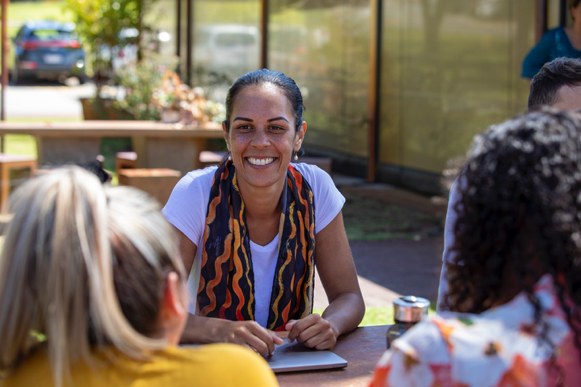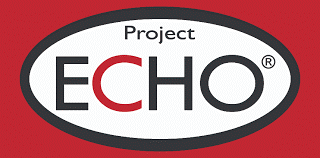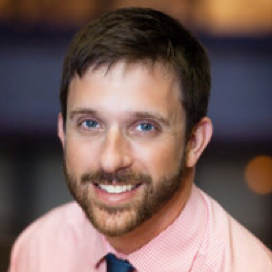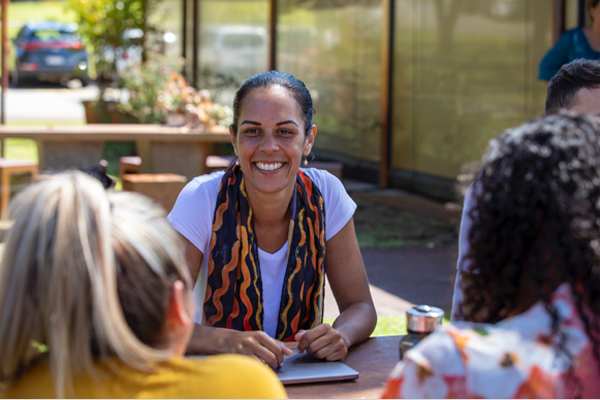
Building Organizational Resiliency in Extended Events (Sessions 4, 5 and 6)
What can you do to promote organizational resilience?




Register
Course Information
- Audience: Public health professionals
- Format: Webinar
- Date/Time: Session 4 recorded May 27, 2020
Session 5 recorded June 2, 2020
Session 5 recorded June 10, 2020 - Price: Free
- Length: 1 hour
- Credential(s) eligible for contact hours: Sponsored by New England Public Health Training Center (NEPHTC), a designated provider of continuing education contact hours (CECH) in health education by the National Commission for Health Education Credentialing, Inc. This program is designated for Certified Health Education Specialists (CHES) and/or Master Certified Health Education Specialists (MCHES) to receive up to 1 total Category I continuing education contact hour. Maximum advanced-level continuing education contact hour is 1. Provider ID: 1131137 Event ID: SS1131137_05272021.
If you are not seeking a CHES/MCHES contact hours, If you complete the evaluation, you will receive a Certificate of Completion. The Certificate will include the length of the course. - Competencies: Leadership and Systems Thinking Skills
- Learning Level: Awareness
- Companion Trainings: Building Individual Resiliency in Extended Events
Session 1, 2 and 3 - Supplemental materials: Session PowerPoint
- Pre-requisites: None
About this Recording
This Building Resiliency in Extended Events workshop series aims to help participants support resilience through individual and workforce strategies to manage stressors induced by prolonged emergencies. A recording of the didactic part of the workshops are available, together with a summary handout of the main points.
Building resiliency in an extended incident is not an identical process to building resiliency after a single disaster event or in normal non-disaster times. This training will focus on stress on organizational stressors and interventions.
What you'll learn
At the end of the recording, participants will be able to:
- Identify stressors related to the organizational demands of individuals working in public health.
- Describe useful strategies to mediate, prevent and manage organizational stressors during extended events
- Recognize when and how to choose interventions to reduce organizational stressors and promote organizational resilience
- Explain recovery processes in ongoing events
Subject Matter Experts

Imani Daniel

Mark Evces
Imani Daniel is a native Virgin Islander who is committed to community empowerment, sustainability, and creating a culture of preparedness in the Virgin Islands. Currently, Imani serves as the Executive Director of the St. Thomas Recovery Team (STRT). The mission of the STRT is to act as a coalition of diverse community stakeholders that are cooperatively coordinating St. Thomas’ longterm recovery response, resource management, resiliency planning, and training in response to hurricanes Irma and Maria. Imani grew up on St. Thomas and was eager to return home after studying Political Science and Neuropsychology at the Johns Hopkins University in Baltimore, Maryland. She has previously held both research and outreach positions at the Johns Hopkins Hospital, particularly regarding mental health in vulnerable and marginalized communities. Since her return home in 2015, Imani has served as the Community Engagement Specialist for the Virgin Islands Established Program to Stimulate Competitive Research (VI-EPSCoR) at the University of the Virgin Islands (UVI) where she engaged other citizens with the ongoing Mare Nostrum research being conducted at UVI. After this appointment, she served as the Chief of Staff for the 32nd Legislature’s Senate Secretary, Senator Jean A. Forde. These two positions have given Imani the tools she needs to excel at advocacy, policy reform and strategic community engagement. Imani focuses on a life of service and giving Virgin Islanders the tools they need to advocate for themselves. She serves on the Board of the Family Resource Center and actively participates in All Saints Cathedral School alumni support events. She still supports VI-EPSCoR through her participation in several grants revolving around Hazard Mitigation, Community Resilience and Natural Resource Management. Recently, she has presented at the 2019 NVOAD (National Voluntary Organizations Active in Disaster), the 2020 Congressional Black Caucus Leadership Summit, and the 2019 and 2020 CGI (Clinton Global Initiative) conferences to promote the initiatives of the territory. She envisions a stronger and more resilient territory and hopes that her efforts and networks can help provide a more hopeful future in the Virgin Islands.
Mark Evces, PhD, ABPP is an organizational consultant and clinical psychologist who, prior to launching WorkHaven LLC, served as the Assistant Director of Mental Health in the NYU School of Medicine, World Trade Center (WTC) Health Program Clinical Center of Excellence, and Clinical Instructor of Psychiatry at the NYU School of Medicine. In his role at the WTC health program, he provided and supervised integrative, evidence-based psychotherapy for first responders, workers, and volunteers who participated in the rescue and recovery response to the WTC attacks of September 11, 2001. He has worked across a variety of public mental health clinical, training, and research settings in Atlanta, New York, and rural Georgia. For six years, he has consulted with nonprofit organizations to help further efforts towards greater workplace health and productivity in pursuit of social justice and human rights. He also maintains a private psychotherapy practice, where he provides trauma-informed care. Dr. Evces, with Gertie Quitangon, MD, co-edited Vicarious Trauma and disaster Mental Health: Understanding Risks and Promoting Resilience, published by Routledge Press in 2015.
Registration and Contact Hours
Select the Enroll button below to register for this recording. If you have any trouble accessing the recording, contact support@nephtc.org.
Acknowledgement: This project is/was supported by the Health Resources and Services Administration (HRSA) of the U.S. Department of Health and Human Services (HHS) under grant number UB6HP31685 “Regional Public Health Training Center Program.” This information or content and conclusions are those of the author and should not be construed as the official position or policy of, nor should any endorsements be inferred by HRSA, HHS or the U.S. Government.
* Yale School of Public Health, Office of Public Health Practice, a New England Public Health Training Center partner, is a designated provider of continuing education contact hours (CECH) in health education by the National Commission for Health Education Credentialing, Inc. All CHES credit inquiries are managed by YSPH

